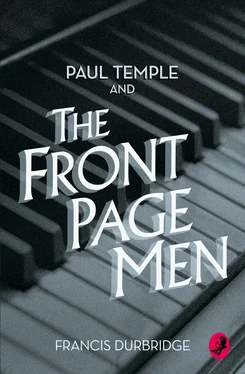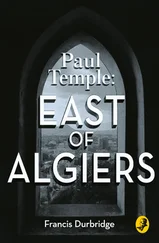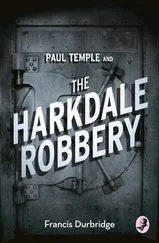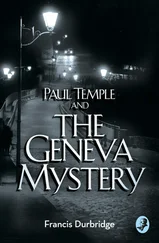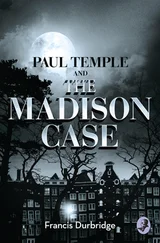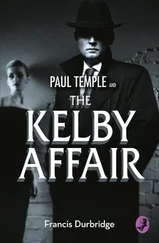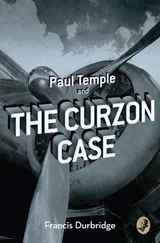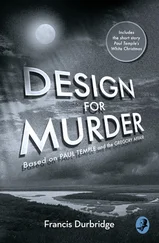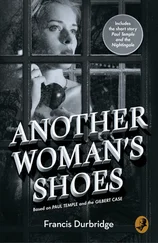Francis Durbridge - Paul Temple and the Front Page Men
Здесь есть возможность читать онлайн «Francis Durbridge - Paul Temple and the Front Page Men» — ознакомительный отрывок электронной книги совершенно бесплатно, а после прочтения отрывка купить полную версию. В некоторых случаях можно слушать аудио, скачать через торрент в формате fb2 и присутствует краткое содержание. Жанр: unrecognised, на английском языке. Описание произведения, (предисловие) а так же отзывы посетителей доступны на портале библиотеки ЛибКат.
- Название:Paul Temple and the Front Page Men
- Автор:
- Жанр:
- Год:неизвестен
- ISBN:нет данных
- Рейтинг книги:5 / 5. Голосов: 1
-
Избранное:Добавить в избранное
- Отзывы:
-
Ваша оценка:
- 100
- 1
- 2
- 3
- 4
- 5
Paul Temple and the Front Page Men: краткое содержание, описание и аннотация
Предлагаем к чтению аннотацию, описание, краткое содержание или предисловие (зависит от того, что написал сам автор книги «Paul Temple and the Front Page Men»). Если вы не нашли необходимую информацию о книге — напишите в комментариях, мы постараемся отыскать её.
Paul Temple and the Front Page Men — читать онлайн ознакомительный отрывок
Ниже представлен текст книги, разбитый по страницам. Система сохранения места последней прочитанной страницы, позволяет с удобством читать онлайн бесплатно книгу «Paul Temple and the Front Page Men», без необходимости каждый раз заново искать на чём Вы остановились. Поставьте закладку, и сможете в любой момент перейти на страницу, на которой закончили чтение.
Интервал:
Закладка:
A rather awkward pause was suddenly interrupted by Sergeant Leopold, who entered with a large map, which he placed on the Chief Commissioner’s desk.
‘I think you’ve told me pretty well everything,’ said the Commissioner, ‘and if you’ll excuse me …’
‘Why, certainly, Sir Graham. And if I can be of further service, don’t hesitate to telephone.’
‘Thank you. Sergeant Leopold will show you the way out.’
As soon as Brightman had gone, Sir Graham rang for Inspector Nelson, a dark, alert young man, and ordered him to telephone Floyds Bank in Manchester Street and find out whether their customer, Andrew Brightman, had cashed a cheque for eight thousand pounds on March the eighth.
‘And tell Reed and Hunter I want them,’ he added as an afterthought.
‘Well, Mac, did you check up on Brightman?’ Forbes demanded, as the stocky figure appeared in the doorway, closely followed by Hunter.
‘I did that. He’s a stockbroker – lives in Hampstead. Divorced his wife in 1928, and has the custody of the child.’
‘H’m, that seems to tally,’ agreed Sir Graham. ‘What else?’
‘Brightman and the piano-tuner were the only people who visited Sir Norman Blakeley on the day the boy disappeared.’
‘What about the piano-tuner?’
‘I checked up on him, sir. He used to be with Clapshaw and Thompson’s in Regent Street. Started on his own about six years ago. Lives at Northstream Cottages, Streatham.’
‘That sounds fair enough. Now I’ve some news for you, Mac. Sir Norman’s had a message. They want nine thousand pounds by four o’clock tomorrow afternoon.’
Even Mac’s inscrutable poker face reacted to this information, and Hunter made no secret of his astonishment.
There was a moment’s silence.
‘Nine thousand?’ repeated Reed. ‘Did he get any instructions?’
‘Yes, it must be left in twenties – inside the telephone-box at the corner of Eastwood Avenue, Mayfair.’
‘Eastwood Avenue! They’ve certainly got a nerve!’ exclaimed Hunter.
Sir Graham pulled the map towards him, and they all bent over it. They traced the position of the telephone-booth without much difficulty, and the Commissioner began to formulate a plan.
‘Mac, I shall want six of your men here on the corner of Lenton Park Road,’ he said, ‘that will give you a clear view in both directions.’
‘We’ll be there, sir.’
‘And, Hunter, you’ll be on the other corner, opposite the booth. I want everybody there by three o’clock at the latest.’
The two assistants acknowledged their instructions and made certain of their positions on the plan. Then another idea occurred to the Chief.
‘This block of flats here has a perfect view of the telephone-booth if this map’s accurate.’
‘That’s so, sir,’ agreed Hunter, who knew the district quite well.
‘See if you can arrange for me to be in the first floor flat. Ring the janitor, Hunter, and find out whom it belongs to. The address is Eastwood Mansions.’
Hunter went out to make the call, passing Nelson in the doorway. He had returned to inform Sir Graham that Floyds Bank had turned up Brightman’s cheque, which corresponded in every detail with the Commissioner’s description.
‘Well, Mac, it looks as if things are moving,’ mused Sir Graham.
‘They always are moving, sir, in this business,’ was the non-committal reply.
‘By the way, here are two more cards for your collection. They were sent to Brightman.’
Before Mac could ask any further questions, Hunter returned.
‘That flat, sir,’ he began.
The Chief looked up.
‘Whose is it?’
‘The address is 49, Eastwood Mansions, sir.’
There was a rather peculiar smile on Hunter’s mobile features.
‘The flat belongs to Mr. and Mrs. Paul Temple, sir,’ he said.
CHAPTER III
Sir Norman Blakeley
The morning after Sir Norman Blakeley visited Scotland Yard, a taxi drew up at the main entrance of Northern Bank in the Haymarket, and Sir Norman emerged, carrying a small leather suitcase. He was nervous and apprehensive, yet to the casual observer here seemed to be almost an attitude of resigned indifference in his manner. His eyes were weary, and the skin on his face was flabby and greyish-yellow. A doctor would have taken one look at him and immediately reached for his hypodermic needle.
‘Wait for me; I shan’t be long,’ Sir Norman ordered, as he stepped out rather heavily, and the driver touched his cap respectfully in acknowledgment. It was a fine morning, the sort of morning on which people preferred to walk rather than take a taxi, and he was lucky to have picked up this fare so early in the day; with a bit of luck, this distinguished-looking passenger would demand to be taken to one of the outer suburbs like Richmond – it would be a nice run through the Park this morning. ‘All the same, I’d sooner it was Croydon,’ mumbled the driver to himself. ‘It’d be nice to get ’ome for a bit o’ dinner.’ It was surprising how very few people wanted to go to Croydon these days – at night he invariably had to make the journey home without a fare.
He was cogitating upon this point when another well-dressed man came on the scene, opened the taxi- door without warning, and declared briskly: ‘Take me to Euston—quick as you can—I’ve a train in twenty minutes. …’
‘Sorry, guv’nor. The cab’s taken—I’ve got a fare in the bank ’ere. There’s a rank just up the road—’
The stranger immediately took a pound note from his pocket and unceremoniously pushed it under the driver’s nose. ‘I must get the 11.15 from Euston,’ he snapped. ‘And if you do it, there’s a pound for you.’
With a puzzled frown, the driver looked inquiringly into the bank entrance. There was no sign of his former passenger. Then he looked at his meter, which registered three-and-sixpence. He made a rapid calculation on the question of the maximum fare to Euston and decided he would clear at least ten shillings on the deal.
‘Get in, sir,’ he invited, slammed the door after his new fare, clicked the flag down as he sprang into his seat, and briskly started the engine.
The Haymarket branch of the Northern Bank is one of the oldest of its London offices, and its fittings savour of the traditional baronial hall. All the clerks are similarly attired in dark coats and striped trousers, and one or two of them can still remember the days when they were all expected to wear top hats. In spite of the absence of toppers, however, dignity is still the prevailing note.
Sir Norman never particularly liked this bank. He kept his account there because his father had done so before him, and it would have been rather an effort to change. As he stood there now, he resented the slightly supercilious air with which the clerk examined the cheque he had passed over. The young man, who was new to counter-work, had never been asked to such a large cheque before. He turned it over several times in patent hesitation. Suddenly Sir Norman’s temper got the better of him.
‘If you wish to refer that cheque, please do so at once. I want nine thousand pounds in twenty-pound notes, and they must not be numbered consecutively.’
The young cashier blushed, then managed to stammer an apology. ‘I won’t keep you a minute, sir … I just wondered if …’ Rather incoherently, he beat a hasty retreat to the other side of the counter. Sir Norman could see him talking to a small group of three other clerks in hushed whispers. One of them peered over the top of the counter, obviously to make certain of the customer’s identity.
Meanwhile Sir Norman drummed his fingers impatiently upon the expensive walnut surface. After what seemed almost ten minutes, but which was in reality exactly ninety seconds, the door of the manager’s at the far end of the counter was opened by the young cashier.
Читать дальшеИнтервал:
Закладка:
Похожие книги на «Paul Temple and the Front Page Men»
Представляем Вашему вниманию похожие книги на «Paul Temple and the Front Page Men» списком для выбора. Мы отобрали схожую по названию и смыслу литературу в надежде предоставить читателям больше вариантов отыскать новые, интересные, ещё непрочитанные произведения.
Обсуждение, отзывы о книге «Paul Temple and the Front Page Men» и просто собственные мнения читателей. Оставьте ваши комментарии, напишите, что Вы думаете о произведении, его смысле или главных героях. Укажите что конкретно понравилось, а что нет, и почему Вы так считаете.
